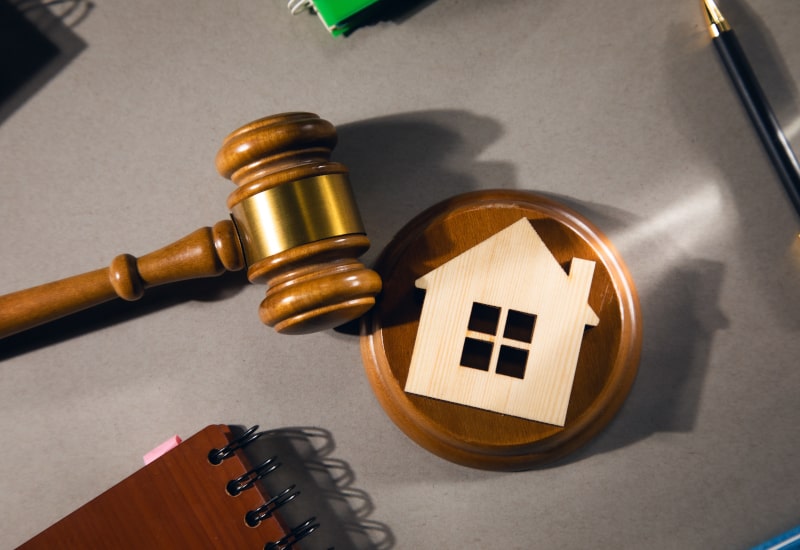Wonderful service from start to finish.

Buying property at auction can be a thrilling and rewarding experience. However, knowing the legal implications, rules and regulations, and possible risks involved in such a purchase is essential. In this article, we will explore the key considerations for anyone looking to buy property at auction in the UK.
Understanding property auctions
Firstly, it is important to note that purchasing property at auction creates a legally binding agreement. This means that once the hammer falls, the winning bidder is legally obligated to complete and buy the property. The buyer must pay a 10% deposit on the day of the auction if their bid is successful. Therefore, it is essential that you thoroughly research the property before making a bid. This should include a detailed inspection of the property, checking for issues or defects, and obtaining a copy of the legal pack from the auctioneer.
Many buyers at auction are cash buyers; however, if you are sourcing funds from third parties or lenders, it is essential to have these secured in readiness for a successful bid. Completion is often set for twenty business days from the auction date, so there is only a short time to finalise the purchase after a successful bid.
What is the legal pack?
The legal pack will contain important information such as the special conditions of the sale, title deeds, search results, and any planning permission or building regulations that may apply to the property if the seller has these available. Instructing a Conveyancer to review the legal pack and provide advice is strongly advisable. A Conveyancer may reveal potential issues or identify aspects you have not yet considered.
Property law and auctions
Awareness of the UK's rules and regulations surrounding property auctions is also essential. These will vary depending on the auctioneer and the type of auction being held. Typically, auctions are governed by the Auctioneers and Valuers Association (AVA) and the National Association of Valuers and Auctioneers (NAVA). These bodies set standards for auctioneers and provide guidance on best practices.
Property auction process
When attending an auction, arriving early and registering your interest with the auctioneer is crucial. You will be required to provide proof of identity and will be given a number or code to use when bidding. As already mentioned, the winning bidder will have to pay a 10% deposit at the auction.
It is important to set a budget before attending the auction and stick to it. Auctions can be fast-paced and emotionally charged, so getting carried away and overbidding is easy. Also, remember that there may be additional costs on top of the purchase price, such as legal fees, stamp duty, and auction fees; another reason to pay real attention to the legal pack.
Should I buy property at auction?
The main benefit of buying property at auction is the potential to secure a bargain. However, it is important to be aware that risks are also involved. For example, the property may have hidden defects or be subject to restrictions that could affect its value or your ability to use it as intended.
It is advisable to approach the process cautiously and thoroughly understand the legal implications, rules and regulations, and risks involved. By researching and seeking professional advice, you can increase your chances of a successful and stress-free purchase, with the potential to make a lucrative investment.
At Warner Goodman, we have a team of Conveyancers that specialise in property auctions. If you have any doubts or concerns, please do not hesitate to contact us. We can help you with various services, including reviewing auction legal packs and assisting you with the auction process itself. For help and advice, please call our Property Auction team on 023 9277 6569 or email auctions@warnergoodman.co.uk.

